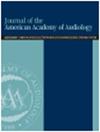Working Memory, Attention Skills and Language Proficiency in Children with Unilateral and Bilateral Cochlear Implants
IF 1.2
4区 医学
Q3 AUDIOLOGY & SPEECH-LANGUAGE PATHOLOGY
引用次数: 0
Abstract
ABSTRACT Background: Previous studies observed that children with cochlear implants (CIs) have poor language, working memory, and attention skills. The ability to perform cognitive tasks, such as attention and memory, plays a crucial role in the academic achievement and everyday life of children with hearing impairment. Purpose: This study aimed to evaluate and compare the effects of age at the time of implantation and bilateral hearing on cognitive skills, such as language development, working memory, and selective attention, among children with CIs. Research Design: Language skills were assessed using the Test of Language Development-Primary: Fourth Edition (TOLD-P:4), working memory using the Visual-Aural Digit Span Test-Revised Form (VADS-R), and selective attention skills using the Stroop Test TBAG Form. Study sample: A total of 58 participants, comprised of 21 children with early unilateral CIs (before 2 years), 18 children with late unilateral CIs (after 2 years), and 19 children with bilateral CIs, between the ages of 6 and 9 years, were included in the study. Data collection and analysis: According to the age at the time of implantation and whether or not the participant was unilaterally or bilaterally implanted, the mean scores, percentage values, and resultant scores of the participants were calculated using the Mann-Whitney U test. The number of repeated backward digit spans for the VADS-R test, completion times, number of errors and corrections for the Stroop test, raw scores, scaled scores corresponding to raw scores at the relevant age, descriptive terms for the TOLD-P:4 test, and within-group comparisons for all tests were examined. Results: There were significant differences in language, working memory, and attention skills between individuals with early and late unilateral cochlear implantation, whereas there were no significant differences in many subtests between individuals with early unilateral and bilateral cochlear implantation. Conclusion: These findings demonstrate the importance of early cochlear implantation and bilateral hearing on the development of cognitive processes, such as language development, selective attention, and memory skills, which are important factors that may contribute to children's academic performance and overall success.单侧和双侧人工耳蜗植入儿童的工作记忆、注意力技能和语言能力
摘要背景:已有研究发现,人工耳蜗植入儿童的语言、工作记忆和注意力能力较差。执行认知任务的能力,如注意力和记忆力,在听力障碍儿童的学业成就和日常生活中起着至关重要的作用。目的:本研究旨在评估和比较植入时的年龄和双侧听力对CIs儿童语言发展、工作记忆和选择性注意等认知技能的影响。研究设计:使用语言发展测试-初级:第四版(TOLD-P:4)评估语言技能,使用视觉-听觉数字广度测试-修订表格(VADS-R)评估工作记忆,使用Stroop测试TBAG表格评估选择性注意技能。研究样本:共有58名参与者,包括21名早期单侧CIs儿童(2岁前),18名晚期单侧CIs儿童(2岁后)和19名6至9岁的双侧CIs儿童。资料收集与分析:根据受试者植入时的年龄以及是否单侧或双侧植入,采用Mann-Whitney U检验计算受试者的平均得分、百分比值和结果得分。检查VADS-R测验的倒向数字重复次数、完成次数、Stroop测验的错误和更正次数、原始分数、相应年龄原始分数对应的标度分数、TOLD-P:4测验的描述性术语,以及所有测验的组内比较。结果:早期和晚期单侧人工耳蜗植入个体在语言、工作记忆和注意技能上存在显著差异,而早期和双侧人工耳蜗植入个体在多项亚测试上无显著差异。结论:早期人工耳蜗植入和双侧听力对儿童语言、选择性注意和记忆能力等认知过程的发展具有重要意义,这些认知过程可能是影响儿童学习成绩和整体成功的重要因素。
本文章由计算机程序翻译,如有差异,请以英文原文为准。
求助全文
约1分钟内获得全文
求助全文
来源期刊
CiteScore
3.10
自引率
0.00%
发文量
46
审稿时长
6-12 weeks
期刊介绍:
The Journal of the American Academy of Audiology (JAAA) is the Academy''s scholarly peer-reviewed publication, issued 10 times per year and available to Academy members as a benefit of membership. The JAAA publishes articles and clinical reports in all areas of audiology, including audiological assessment, amplification, aural habilitation and rehabilitation, auditory electrophysiology, vestibular assessment, and hearing science.

 求助内容:
求助内容: 应助结果提醒方式:
应助结果提醒方式:


